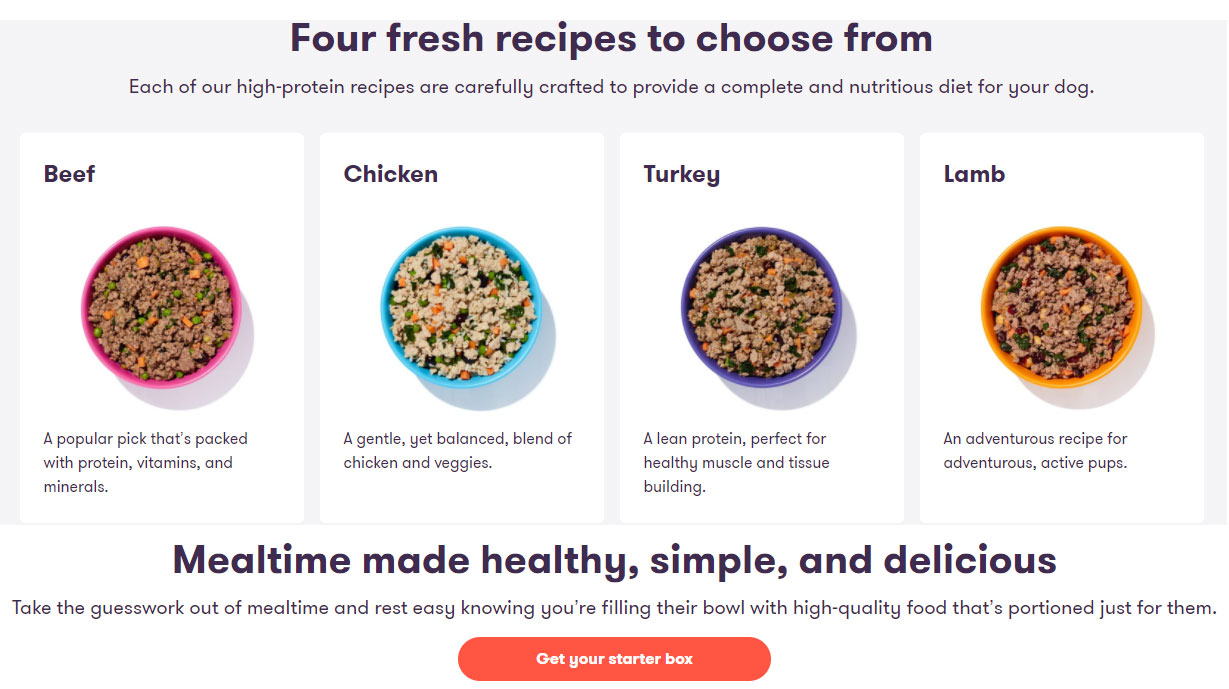Gastritis in dogs
Gastritis is a common condition in dogs. Although it is relatively trivial, it is not trivial and should never be neglected.
Indeed, behind every gastritis - even the most benign - lies discomfort, pain and a general malaise more or less pronounced, but also risks of potentially severe complications.
And for good reason, gastritis in dogs is not a disease, but a symptom. It can be caused by minor health problems, but also by serious pathologies, such as cancer, kidney failure or the dreaded intestinal obstruction.
What is dog gastritis?
Gastritis in dogs is an inflammation of the mucous membrane lining the stomach, which can result from a wide range of causes. Therefore, gastritis is not a disease, but a symptom.
In fact, the term "gastritis" can not only refer to inflammations resulting from various diseases, but also to a wide variety of clinical signs. Gastritis in dogs is a multifaceted digestive disorder, which may be chronic or acute.
Ultimately, most functional dyspepsia in dogs results in a diagnosis of gastritis, without necessarily determining the primary cause of the disorder. Functional dyspepsia is a disorder of digestion with at least one symptom of presumed gastroduodenal origin, correlated with the absence of symptoms reflecting systemic disease.
It is distinguished from organic dyspepsia, in which visible lesions (by medical imaging) of the digestive system can be observed. In simple terms, a dog that vomits without explanation is considered to have functional dyspepsia, which is difficulty in digesting properly.
When vomiting cannot be associated with a specific disease, the animal is usually treated for gastritis in the first instance.

Symptoms
The symptoms of gastritis in dogs are not always as easy to observe as one might imagine. There are many forms of this condition, from virulent to completely asymptomatic, and the severity of the clinical signs does not necessarily correlate with the severity of the problem.
Chronic gastritis
Chronic gastritis manifests itself by benign symptoms, and could even be completely asymptomatic in the majority of cases. However, it is no less severe than the acute form of the disease, because it is likely to cause lesions that may, in the long term, become fibrotic, permanently deteriorating the digestive function which, let's remember, is vital.
Chronic gastritis is essentially manifested by regular, but relatively spaced and/or not very abundant, bile-like or frothy vomiting. Bile-like vomits can be recognized by their generally rather liquid consistency and their yellowish or greenish, more or less translucent color.
Foamy vomit, as the name suggests, is white foam. In this case, the dog is not vomiting bile specifically, but various transparent gastric juices that begin to foam when agitated during the vomiting process.
In the case of chronic gastritis, the dog may also have a tendency to lose weight slowly. Because the condition is long-term, the dog usually experiences ongoing digestive discomfort - which goes unnoticed by the owner - and tends to lose its appetite.
Conversely, some dogs with chronic gastritis may have a tendency to overeat and gain weight, even though they are on a ration or diet. This is because the stomach pain caused by gastritis is often more pronounced when the stomach is empty. The dog will quickly understand that he suffers less when his stomach is full, and will tend to throw himself on his bowl.
By swallowing his food whole, he risks putting on weight, but will also worsen his case by irritating his already weakened stomach even more, and consequently, by eating even more, thus getting into a vicious circle. So, although one would naturally tend to think the opposite, chronic gastritis is the disorder of obese dogs par excellence, but also of gluttons with eating disorders too often blamed on behavioral problems.
Dogs that lick and/or swallow anything and everything (toys, textiles, garbage, plants, etc.) are often considered unbalanced, potentially due to poor weaning or a lifestyle not adapted to their needs.
In fact, this mania for swallowing everything they can get their hands on is a little-known symptom of chronic gastritis: since dogs are almost always rationed by their owners, they cannot fill their stomachs with food to ease their pain.
Dogs suffering from gastric pain tend to eat whatever they can find, even if it is not edible, which obviously contributes to aggravate the problem by irritating their stomach even more, and even by causing more serious problems (occlusion, perforation...).
Acute gastritis
Acute gastritis is characterized by frequent (several times a day, or once a day over a long period) and/or profuse vomiting. This vomit may be bile or frothy, may or may not contain digested food, and may be tinged with red, brown or pinkish blood.
Before you panic, note that hemorrhagic vomiting is not always a serious condition, although it is absolutely necessary to contact a veterinarian urgently in this type of situation to be sure.
A dog vomiting blood may also have swallowed poison or a blunt object that has perforated the stomach, esophagus or intestines, in which case its hours are numbered.
In the case of acute gastritis, the animal may also be in visible pain. He may tend to adopt so-called analgesic postures, which are intended to relieve the pain. The prayer posture, in which the dog stretches its front legs out in front of it and raises its hindquarters to the sky, is typical of an animal suffering from abdominal pain.
Your dog may also be down, tired, lacking in energy and refusing to eat. Any change in behavior may indicate acute or chronic gastritis, even if the pet shows no digestive symptoms.

Causes
As mentioned earlier in this article, the causes of gastritis in dogs are not always clear. There is a wide variety of causes, and some of the conditions that are regularly involved may be under-diagnosed.
In fact, while acute gastritis rarely goes unnoticed, the majority of chronic gastritis may be completely asymptomatic in dogs. However, even when it does not cause visible symptoms, gastritis still has a deleterious effect on the stomach mucosa, which can lead to long-term deterioration of digestive function.
Chronic gastritis and dog food
Chronic gastritis in dogs is often blamed on the quality of the food they eat and the way it is distributed. Poor quality foods are likely to contain ingredients that are irritating to the animal's digestive mucosa.
These include indigestible foods that the digestive tract of carnivores, which is shorter than that of herbivores, has difficulty digesting properly. This is often the case with cereals, gluten, soy and a plethora of artificial additives and pharmaceutical and chemical contaminants (antibiotics, pesticides...) that are usually found in industrial dog food.
While we often speak of food allergy when a dog suffers from gastritis on a regular basis, supposedly due to its diet, it would actually be more accurate to speak of food intolerance. Food intolerance, unlike allergy, is not an abnormal reaction of the body. It occurs when the dog's digestive tract cannot tolerate certain ingredients because of the nature of the ingredients, not because of a malfunction in the immune system.
In the case of food intolerance, it is the food that is responsible for the dog's ailments, not his body. In the case of an allergy, it is the body that is deficient. Not all dogs have the same sensitivity to poorly digestible ingredients, which is why some dogs have food intolerances that others do not, which reinforces the confusion with allergies.
However, it is important to note that a dog that is more sensitive than another to certain ingredients does not have a deficient organism: it is probably even perfectly healthy. Finally, the way in which dogs are fed, which typically consists of a single meal a day or even two meals a day, also plays a role in the development of chronic gastritis.
This method of feeding, favored by many owners, is based on two factors: first, it is known that some wild carnivores are likely to feed in a manner that might seem quite similar, swallowing one large meal and then fasting until their next prey.
In view of this, it seems rather acceptable to feed your dog only once or twice a day, since it would probably do so in the wild. The second reason for feeding your dog once or twice a day is simply a matter of convenience... for the owner. The distribution of a single daily ration is indeed very little constraining.
When you look at the facts, it is easy to understand that a day (or several days) of fasting after a feast of fresh meat, as wild carnivores do, is very different from a day spent with a meager ration of kibble in the belly.
In the wild, wild carnivores typically eat enough food to last for several days at a time, and remain full for some time after eating. Your domestic dog, on the other hand, is fed a daily ration that meets his needs for 24 hours, energetically speaking.
Kibbles are very dense in energy, so they meet his nutritional needs, but they do not fill his stomach, do not make him feel full for a long time and, in fact, do not protect his mucous membranes, which favors the appearance of gastritis.
In fact, in case of hunger, chronic gastritis is caused by a stomach that remains empty for too long. The digestive juices accumulate in the empty stomach of the dog and attack the mucous membranes because of the lack of food to digest.
Note that this type of chronic gastritis is very often asymptomatic. When symptoms occur, they are first behavioral problems (gluttony, compulsive chewing, etc.), then vomiting, usually in the morning before eating, when the stomach is at its emptiest.
Acute gastritis and dog diseases
Acute gastritis is often contrasted with chronic gastritis. Acute gastritis occurs suddenly, without warning, and often has more severe symptoms. Again, this is a condition that can reflect a wide range of problems. Infectious diseases, especially by certain types of bacteria, are frequently involved. Viruses and parasites are also involved.
Certain metabolic disorders, such as renal insufficiency or pancreatitis, may also be suspected. More rarely, we also encounter cancers of the digestive tract manifesting as gastritis. Finally, never rule out poisoning as a cause of sudden gastritis, especially if your dog is the type to swallow anything and everything.
If your dog has ingested an irritating substance (laundry detergent, shampoo, etc.), the walls of his stomach will become inflamed, which can cause vomiting. If he has swallowed more virulent toxins, such as rat poison, alkalis (bleach) or acids, the tissues of his digestive tract may be destroyed, which may result in bloody vomiting.
When you suspect poisoning, it is essential to contact the Animal Poison Control Center as soon as possible or to go to a veterinarian.

Treatment and prognosis of gastritis in dogs
The treatment of gastritis in dogs depends greatly on its cause. Most of the time, it is suspected to be of food origin, and the treatment is essentially based on the implementation of new lifestyle measures.
A healthier, less fatty and easily digestible diet is essential. It is sometimes necessary to make a cure of wet food (pâtée, terrine, household rations, BARF, etc.), highly more digestible than kibbles, before reintroducing dry food in the dog's diet little by little.
Note that today, a mixed diet, i.e. composed of dry AND wet food, is highly recommended by veterinarians, whether or not your dog suffers from gastritis. While adopting this new diet, it is important to change the way your dog is fed by offering him several small meals in small portions - as is customary for cats.
The aim is to avoid leaving him empty stomach for a long time, which is all the easier when switching to a wet food, which is much less dense than kibble and therefore more voluminous and fills the stomach more.
When the symptoms of chronic gastritis are severe or painful, antacids, antiemetics and possibly anti-inflammatory drugs are sometimes prescribed to relieve discomfort until the pet's new diet gets him back on track.
In case of chronic gastritis related to the dog's diet, the prognosis is very good if the owner takes the trouble to implement good lifestyle measures to relieve his pet.
If the dog is not taken care of, the prognosis is more reserved. In the long term, the dog's stomach may deteriorate permanently. The persistence of an inflammatory environment favors the occurrence of cancer and fibrosis.
In the case of acute gastritis, further medical examination is often necessary to find the cause of the disease. Indeed, acute gastritis cannot be resolved by simply changing the dog's diet, and can quickly worsen when it masks a severe disorder, such as cancer, pancreatitis or kidney failure.
In this case, it is essential to find the source of the problem to determine the most appropriate treatment and to evaluate the prognosis of the animal.
FAQ
How to treat gastritis in dogs?
Treating a dog's gastritis requires first of all determining the cause, which implies consulting a veterinarian. While it may be tempting to save a little time and money by self-diagnosing, we strongly advise against it: even though most chronic gastritis is foodborne and not very serious in its early stages, it is essential to treat it properly so as not to jeopardize your dog's prognosis in the long run. This starts with a reliable diagnosis, followed by an evaluation of the different treatment options best suited to your dog's profile, your commitment to his care and your budget.
My dog has gastritis, what should I do?
If your dog seems to have gastritis, it is essential to take him to a veterinarian to start by making a reliable diagnosis. In most cases, gastritis in dogs is caused by food and can be resolved by changing your dog's eating habits. However, it would be unreasonable to start a new diet or home treatment of any kind without a veterinarian's approval when your dog is obviously ill. Remember that gastritis can also be a sign of cancer, kidney failure, pancreatitis or poisoning.
My dog has gastritis, is it serious?
In most cases, gastritis in dogs is not serious, but it still requires proper management to avoid a poor prognosis for your dog. It can also be a sign of serious illnesses such as kidney failure, cancer, pancreatitis or poisoning. It is therefore essential to consult a veterinarian to determine the seriousness of your dog's ailments.
How do I know if my dog has gastritis?
Typically, gastritis in dogs causes digestive symptoms, including vomiting, which is often bile and/or foamy. However, it is now known that most chronic gastritis is very silent, even asymptomatic.
It is therefore essential to pay attention to your dog's behavior in order to detect gastritis as soon as possible: a dog that inexplicably loses weight or gains weight, that swallows or licks anything, or that throws itself on its bowl and devours the contents in less time than it takes to say "woof", shows all the discreet signs of chronic gastritis.
Although gastritis in dogs is a particularly common disease, it is still far too often neglected, usually due to a lack of knowledge about the subject. Decades of monopoly in the industrial kibble sector have led owners to give their dogs food that is often dubious, in a way that can be very harmful to their digestive health.
Today, veterinary medicine is slowly backing away from the kibble issue. A mixed and fractionated diet is increasingly recommended to prevent the chronic gastritis that plagues many dogs and is highly correlated with another modern canine disease: obesity.

